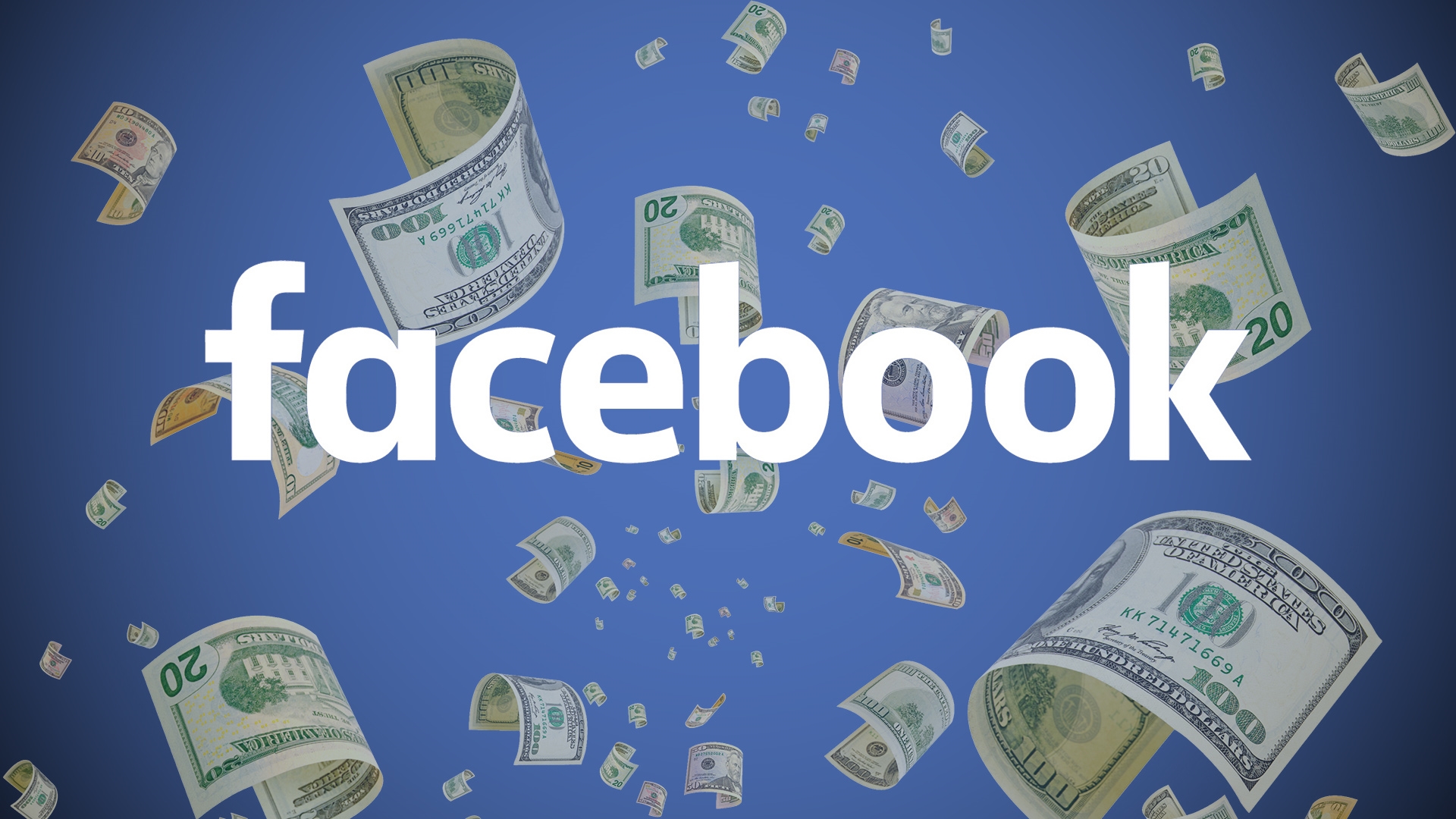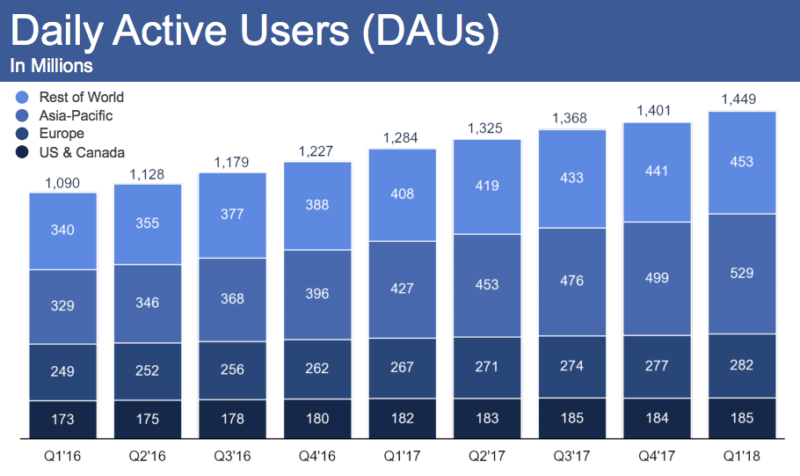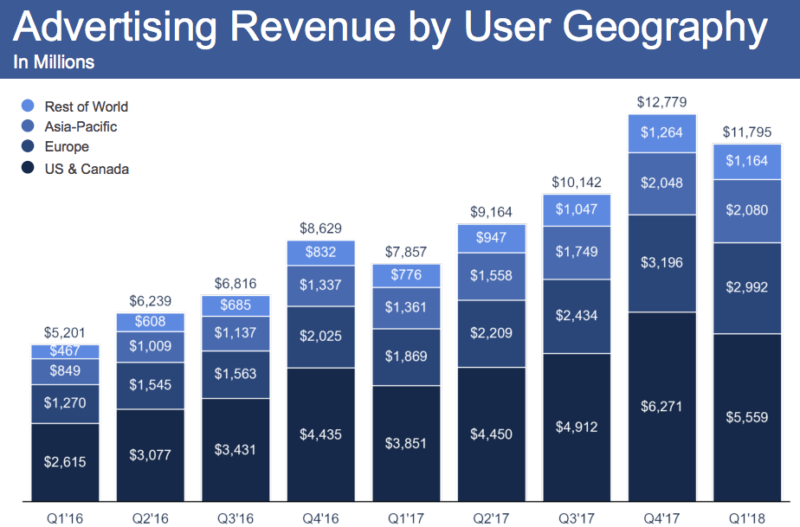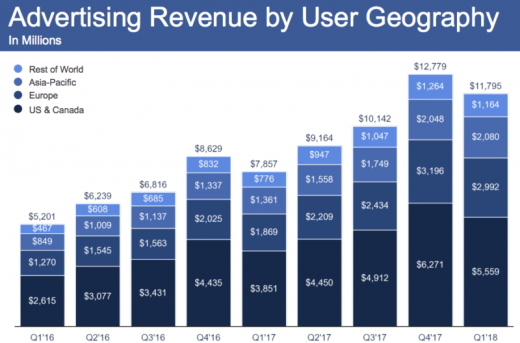Facebook impervious to scandal as Q1 results of $12 billion easily beat expectations
The company posted 50 percent ad-revenue growth; 91 percent was mobile.

Facebook announced first quarter revenues of $11.97 billion, which easily beat Wall Street consensus estimates. The company managed to post growth in all key metrics, despite the ongoing data scandals that have dogged it in recent months.
Marketers spent $11.8 billion on ads on Facebook, which was up 50 percent versus a year ago. Mobile ad revenue contributed 91 percent of that total, or $10.7 billion (A year ago, mobile accounted for 85 percent of ad revenues). Mobile ad revenue was up 60 percent over Q1 2017.

Globally, daily active users (DAUs) were up (though only slightly in North America) 13 percent year over year to 1.45 billion. Monthly active users (MAUs) totaled 2.2 billion, also up 13 percent.
In Q4 2017, Facebook had seen both usage and engagement declines. Investors were nervous about the continuation of that trend with this earnings report. However, their fears appear to have been largely unfounded.


The company reported cash or cash equivalents of roughly $44 billion. Facebook also said it now had 27,742 employees, representing a nearly 50 percent increase compared to a year ago.
In separate news, earlier today, it was announced that Erin Egan will become chief privacy officer while Ken Martin will become the interim head of US policy. Egan had been occupying both roles. Martin is a former FCC chairman and had been Facebook’s VP of mobile and global access policy.
Summary of remarks on the earnings call
During the earnings call, CEO Mark Zuckerberg acknowledged the ongoing data-related controversies that have plagued the company in recent months. He discussed the various initiatives that Facebook was taking to add security and greater transparency to political advertising, for example.
He cited various growth metrics, including the fact that WhatsApp now sees 1 billion messages daily. He also touted massive video calling on WhatsApp.
Zuckerberg also highlighted the role of AI on Facebook, which is used to flag and remove inappropriate or illegal content, among other functions. He added that they also use AI to flag suicidal posts and refer them to first responders, saying that over 1,000 people have been helped by that capability.
COO Sheryl Sandberg followed with an extended argument that targeted advertising and privacy “are not at odds.” She said their users consistently tell them that people want to see relevant advertising. She emphasized the Facebook “doesn’t sell user information to advertisers.” She also itemized the types of control users have over the ads they see and said Facebook has “industry-leading transparency tools.”
As she often has in the past, Sandberg discussed the way that Facebook helps small businesses succeed and reach audiences that they might not be able to afford to reach through other media channels. Facebook now has 80 million active SMB Pages globally, according to Sandberg.
She added that 90 percent of national TV advertisers during the Super Bowl were buying ads on Facebook.
Sandberg briefly addressed GDPR and its potential impact. She said privacy controls globally would be substantially the same around the world, though not identical because of localization for individual markets.
CFO David Wehner elaborated on the likely effect of the new European privacy rules on Facebook’s business. He said he anticipated European MAUs and DAUs will be “flat to down” but that GDPR probably wouldn’t impact ad revenue.
Marketing Land – Internet Marketing News, Strategies & Tips
(23)



